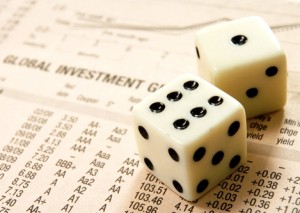
Investing style is similar to one’s personality, sometimes it could be reshaped with lessons learned, but sometimes the habits (good or bad) is like DNA, may last for whole life. So, are you trading, investing or gambling in stocks?
There are pros and cons in each personality, therefore we usually say no one is perfect. Similarly, it is fine to have different styles for stock trading or investing, as long as one practices in the right way aligned to the personality. It is ok to be a short term trader, reacting changes in dynamic stock market, as long as it trend-following, not emotional following with herd mentality. It is also ok to a long term or even life-time investor who may buy a stock and no need to sell for whole life, provided one knows how to establish a portfolio of strong fundamental giant stocks, buying at a market low optimism with regional or global financial crisis.
Most people could learn these positive habits in life or investment, if one is given a chance to learn the right way, then practice on oneself with successes to enhance the confidence, eventually become a new habit or personality. A smoker may quit smoking naturally when knowing the statistics of better health if not smoking. Similarly, healthy diet and exercise regularly are positive habits in life but if one could not have all these good habits, at least could keep whichever positive ones remaining, eg. optimistic mindset, friendliness, etc.
For investing, we don’t have to the best in everything, eg. stocks, properties, forex, bonds, commodity, etc. Even for stocks, we don’t have to know both short term trading and long term investing. Even within investing, we don’t have to master both dividend investing and capital gains. There are hundreds of ways to make money in stocks but one has to master at least one way. This is similar to professions, there are over 1000 different types of jobs and positions, one has to master at least one job to make money.
Some people may not be suitable to trade or invest in stocks due to limitation in personality, especially on some bad habits (eg. following rumors and news to make decisions) but it is never too late to stop “investing” this way which is a gambling in stocks without an edge.
Professional gamblers in casino would not “gamble” (throw dice and wait for luck). Instead, they also apply probability (counting cards, understanding rules of game, capital allocation, etc) in gambling to enhance the chances of winning, knowing when to stop playing, when to bet more, etc. Most gamblers are retail gamblers, which are most welcomed by casino as over the time, they would lose out due to unfair design in casino games. Those professional gamblers may be blacklisted by casinos as it is harder to make money from them, especially from card games.

